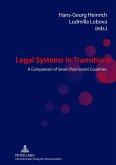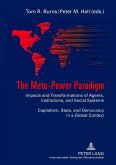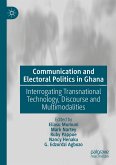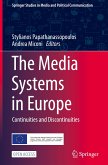It is obvious today that the democratic political regime cannot be considered reality without taking into account political parties; it is as obvious as the phenomenon of partidocracy, expressed through the quasi-total domination of parties in politics. Such judgements prompted the title of the book Stasiology and Electoral Systems. The book itself revives the term stasiology, introduced by M. Duverger in 1951, which defines the science of political parties but has not been used very much over the last decades. Its approach is explanatory and perspective alike, emphasizing the myriad of correlations surrounding the emergence, functions, types and systems of parties, on the one hand, and the electoral systems used to elect parliaments, styles of representation and executive formation on the other.
Bitte wählen Sie Ihr Anliegen aus.
Rechnungen
Retourenschein anfordern
Bestellstatus
Storno








